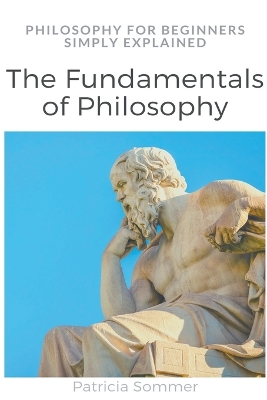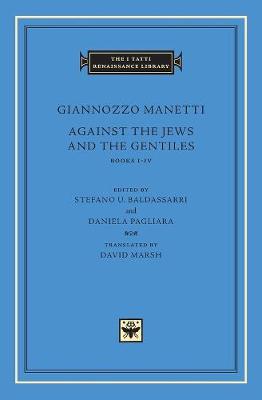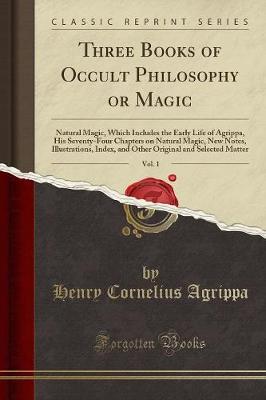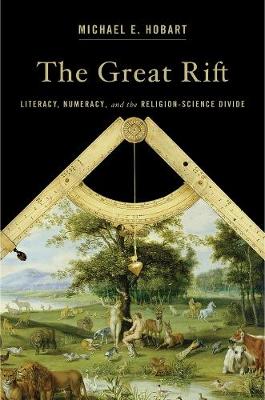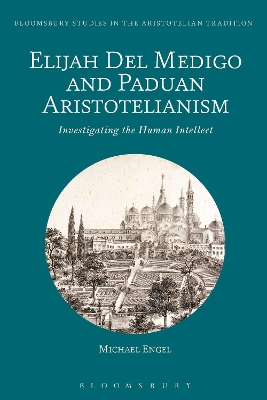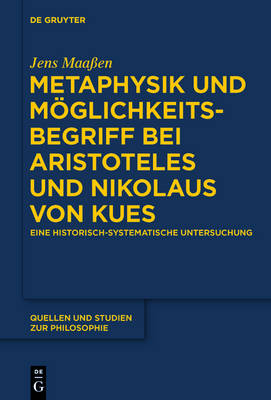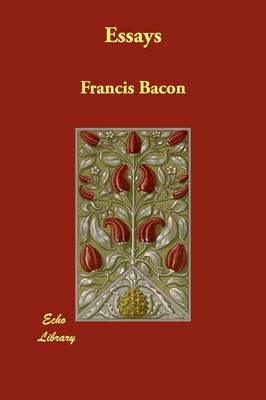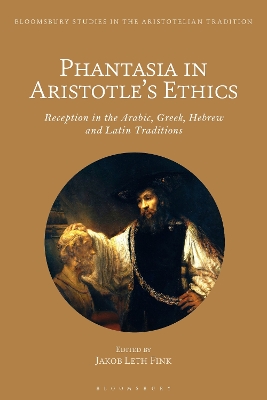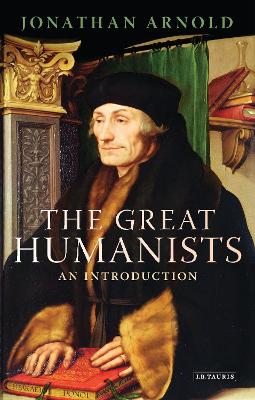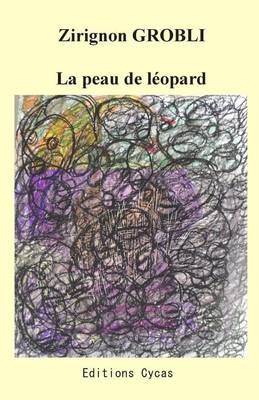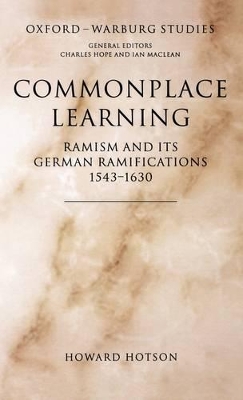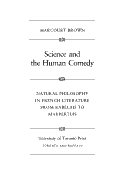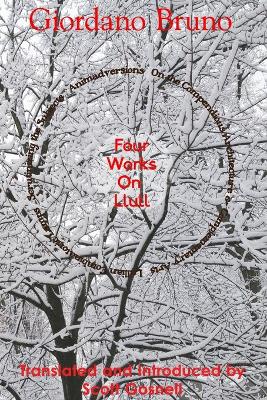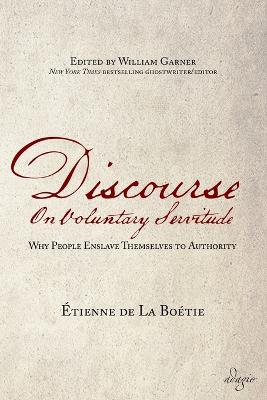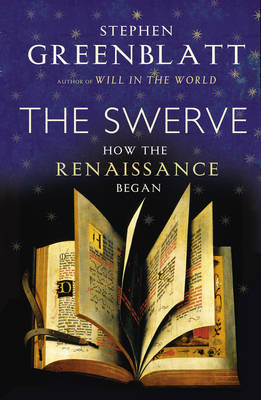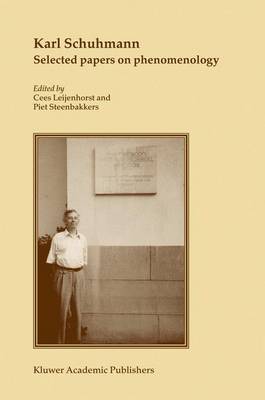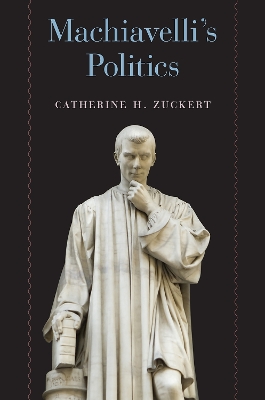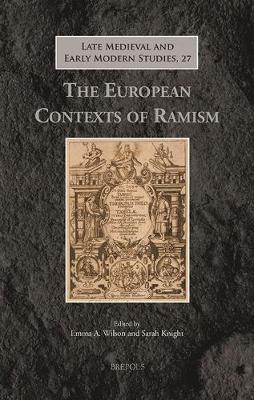Giannozzo Manetti (1396-1459) was a celebrated humanist orator, historian, philosopher, and scholar of the early Renaissance. Son of a wealthy Florentine merchant, he participated actively in the public life of the Florentine republic and embraced the new humanist scholarship of the quattrocento, oriented to the service of the state and the reform of religion. Mastering not only classical Latin but also Greek and Hebrew, he gained access to a whole library of sources previously unknown in the La...
Three Books of Occult Philosophy or Magic, Vol. 1
by Henry Cornelius Agrippa
In their search for truth, contemporary religious believers and modern scientific investigators hold many values in common. But in their approaches, they express two fundamentally different conceptions of how to understand and represent the world. Michael E. Hobart looks for the origin of this difference in the work of Renaissance thinkers who invented a revolutionary mathematical system-relational numeracy. By creating meaning through numbers and abstract symbols rather than words, relational n...
Elijah Del Medigo and Paduan Aristotelianism (Bloomsbury Studies in the Aristotelian Tradition)
by Michael Engel
Elijah Del Medigo (1458-1493) was a Jewish Aristotelian philosopher living in Padua, whose work influenced many of the leading philosophers of the early Renaissance. His Two Investigations on the Nature of the Human Soul uses Aristotle's De anima to theorize on two of the most discussed and most controversial philosophical debates of the Renaissance: the nature of human intellect and the obtaining of immortality through intellectual perfection. In this book, Michael Engel places Del Medigo's ph...
Metaphysik Und Moeglichkeitsbegriff Bei Aristoteles Und Nikolaus Von Kues
by Jens Maaen
Essays (Wordsworth Classics of World Literature) (Collector's Library of Essential Thinkers)
by Francis Bacon
One of the major political figures of his time, Sir Francis Bacon (1561-1626) served in the court of Elizabeth I and ultimately became Lord Chancellor under James I in 1617. A scholar, wit, lawyer and statesman, he wrote widely on politics, philosophy and science - declaring early in his career that 'I have taken all knowledge as my province'. In this, his most famous work, he considers a diverse range of subjects, such as death and marriage, ambition and atheism, in prose that is vibrant and ri...
Phantasia in Aristotle's Ethics (Bloomsbury Studies in the Aristotelian Tradition)
Born out of a love of language, text, classical learning, art, philosophy and philology, the Christian Humanist project lasted beyond the turmoil of sixteenth-century Europe to survive in a new form in post-Reformation thought. Jonathan Arnold here explores the finest intellects of late-Renaissance Europe, providing an essential guide to the most important scholars, priests, theologians and philosophers of the period, now collectively known as the Christian Humanists. "The Great Humanists" provi...
As a Man Thinketh (Dolphin Booklets) (Life Classics, #12)
by James Allen
Our Miniature Editions TM collection continues to grow! Since 1989, when our first minis appeared, Running Press has offered an astonishing range of subjects, sure to find a place in any booklover's library! Visit the golf course for nine holes, head to the kitchen with the Silver Palate chefs, travel to the heavens above, or rediscover the wonders of nature in your own backyard.
Ramism was the most controversial pedagogical movement to sweep through the Protestant world in the latter sixteenth century. While its origins in France, its impact in colonial America, and its influence in England, Scotland, and Ireland have been studied in detail, its uniquely warm reception in central Europe - where the great majority of posthumous reprintings of Ramus's work appeared - has never been synoptically studied. This book, the first contextualized study of this rich tradition, t...
Science and the Human Comedy (University of Toronto Romance)
by Harcourt Brown
Four Works On Llull (Collected Works of Giordano Bruno, #3)
by Scott Gosnell and Giordano Bruno
One of the world's most celebrated scholars, Stephen Greenblatt has crafted both an innovative work of history and a thrilling story of discovery, in which one manuscript, plucked from a thousand years of neglect, changed the course of human thought and made possible the world as we know it.Nearly six hundred years ago, a short, genial, cannily alert man in his late 30s took a very old manuscript off a library shelf, saw with excitement what he had discovered, and ordered that it be copied. The...
Karl Schuhmann, Selected Papers on Phenomenology
by Karl Schuhmann, Cornelis Hendrik Leijenhorst, and Piet Steenbakkers
Machiavelli is popularly known as a teacher of tyrants, a key proponent of the unscrupulous "Machiavellian" politics laid down in his landmark political treatise The Prince. Others cite the Discourses on Livy to argue that Machiavelli is actually a passionate advocate of republican politics who saw the need for occasional harsh measures to maintain political order. Which best characterizes the teachings of the prolific Italian philosopher? With Machiavelli's Politics, Catherine H. Zuckert turns...
The European Contexts of Ramism (Late Medieval and Early Modern Studies, #27)
